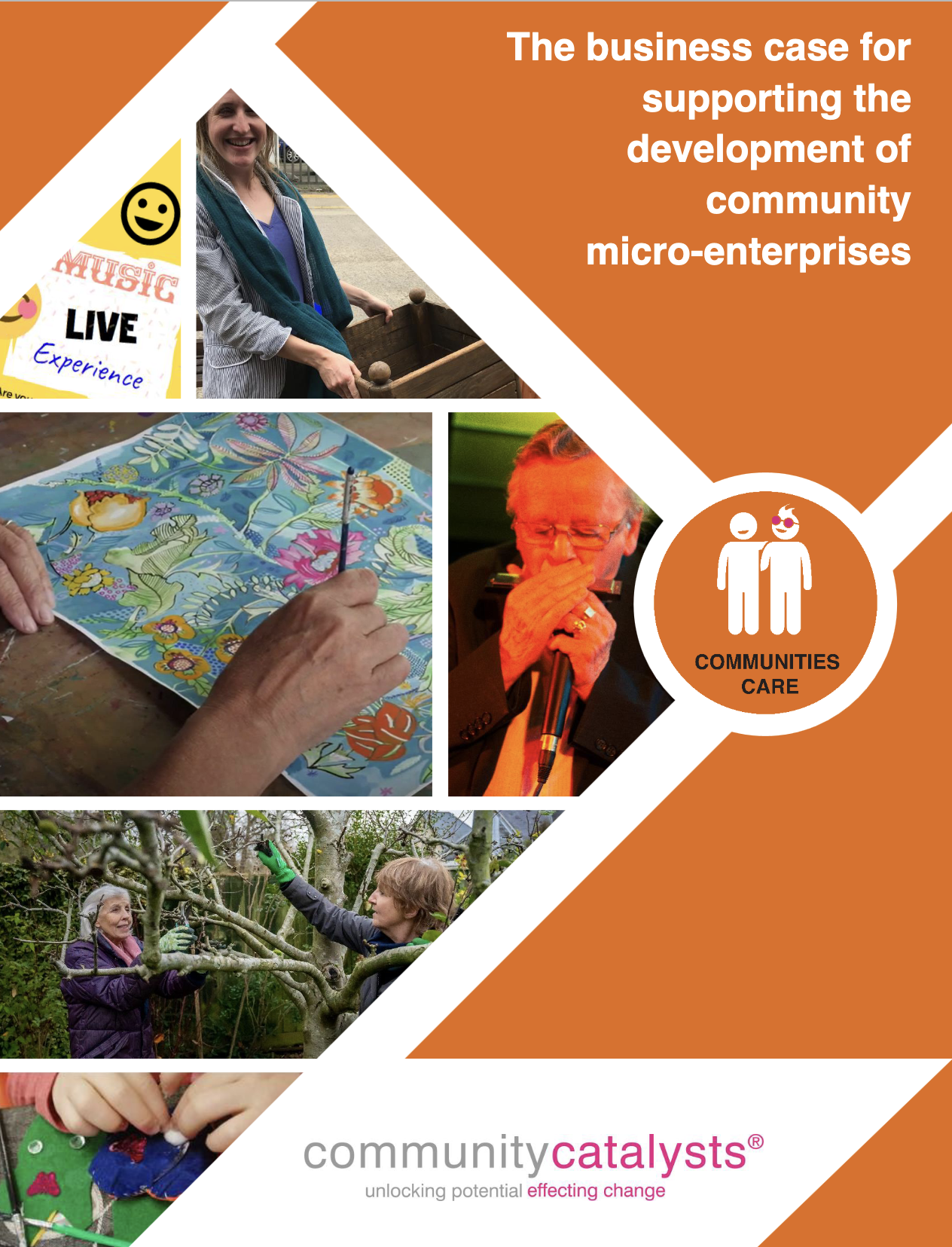Community Catalysts (Social Care)
The Community Catalysts programme provides tailored support to micro-SME’s in the social care sector, including both help in setting up a business and navigating the regulatory landscape. They work in a locally embedded way, employing catalyst co-ordinators with specific local knowledge, guided by an advice framework in line with CQC standards and standards developed by Community Catalysts themselves – ‘Doing It Right,’ which places value on viability, sustainability and high quality, person-centred services.

Measurable impacts
Whilst a NEF report in 2020 showed that by 2017, Community Catalysts had created 233 micro-enterprises and delivered almost £1m in cost savings to Local Authroities, their wider impact is even more impressive (see below for link to their website). Click here to read more about how we view ‘Wider Impacts’
“Partnering with the local authority enables culture and system change, to allow micro-enterprises to flourish – aiming to help councils move away from paternalistic, risk averse models and towards more relational ways of engaging with stakeholders. ”
An evaluation by NEF in 2020 found these micro-enterprises were building social connectedness and growing resilience, creativity and diversity. They recommended that, as market shapers, local authorities should place a higher value on collaboration within commissioning by involving local people in redirecting investment to where it is most needed. This approach would help break through silos within councils and encourage innovation around local economic strategies for social care.
Community Catalysts help people find ways to approach health and care that put people before systems. They offer accessible, engaging learning opportunities for health and care practitioners and people who use health or care services. Their personal development programmes have a strong focus on people’s strengths, building on what works well.
“Community micro-enterprises could be an integral part of every local economy. As community businesses, they represent a form of entrepreneurship that is accessible to and benefits people who are not, perhaps, ‘typical’ entrepreneurs. They connect communities, stimulate and support local services, and build resilience, diversity and creativity into local economies” (NEF, 2020).
